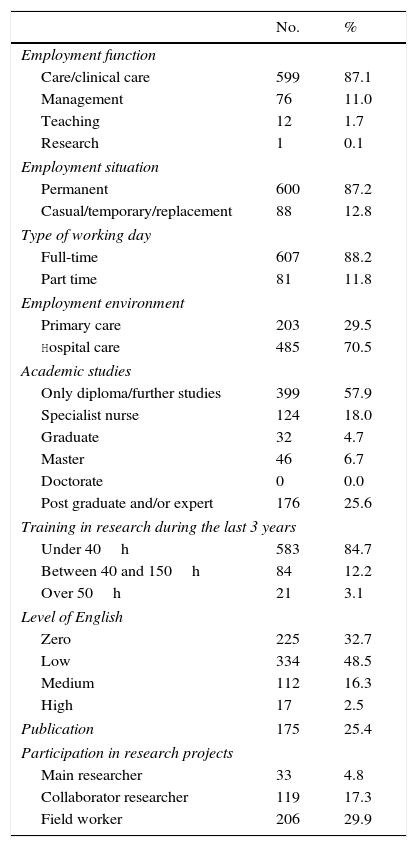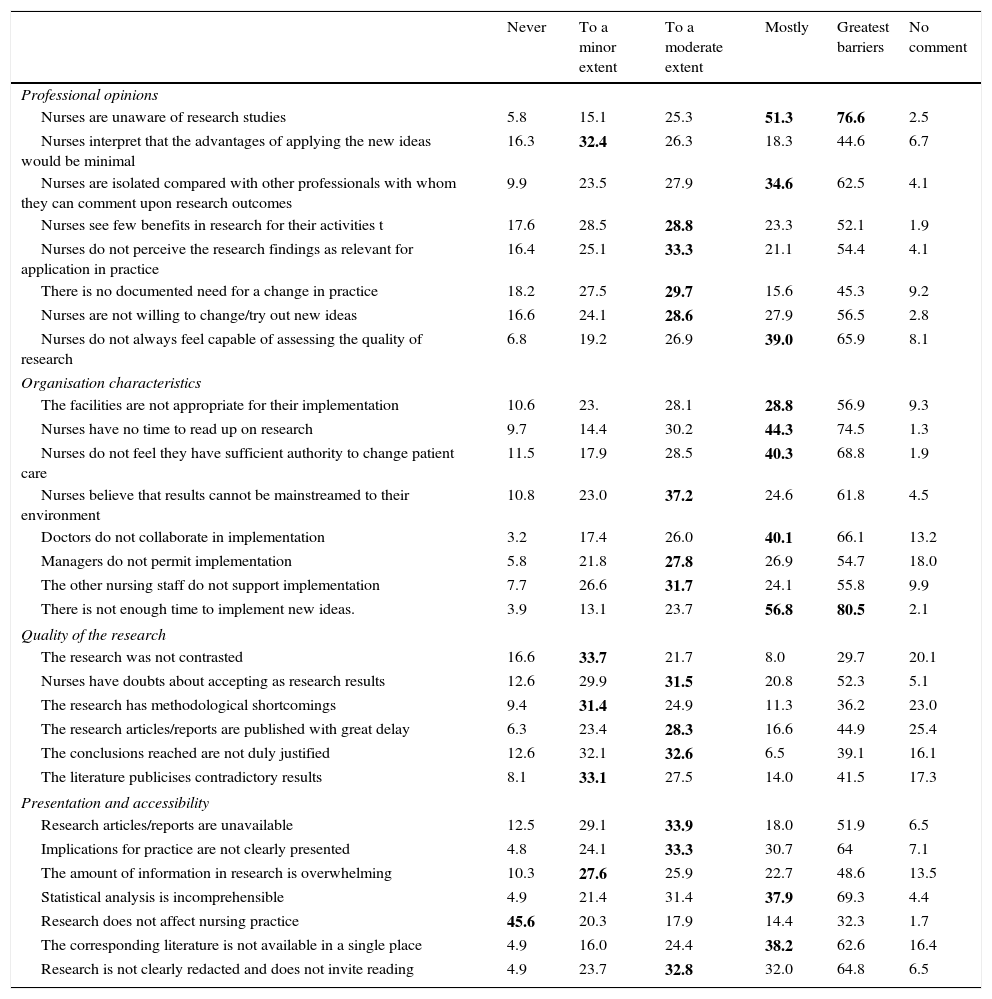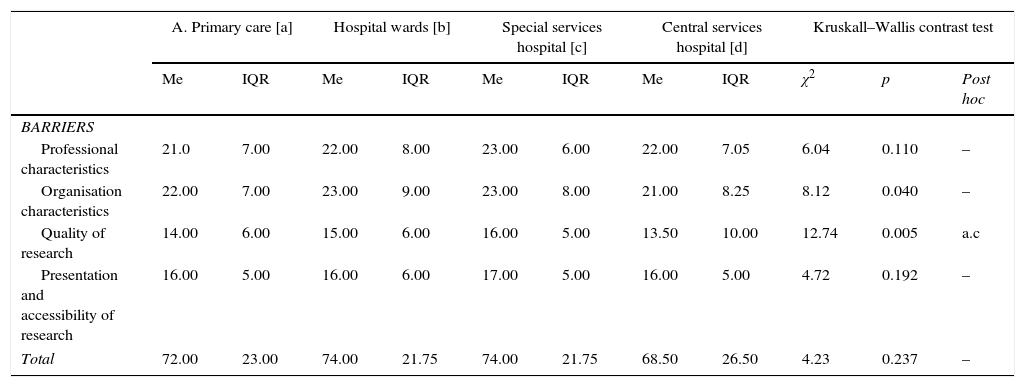To understand the barriers to implementing nursing research findings into practice, as perceived by the nurses working in Osakidetza and to analyse if the workplace factor and time worked affect the perception of these barriers.
MethodsCross-sectional study. BARRIERS Scale questionnaire was given to a representative sample of 1572 Basque Health Service nurses, stratified and randomised, according to scope of work and job responsibility (response rate: 43.76%).
ResultsAccording to the research results, the first important barrier was “insufficient time on the job to implement new ideas”. Nurses have perceived the organisational factor as the most important barrier in their practice. Nurses in “Special hospital departments” perceived more barriers in the “quality of research” factor than those working in “Primary Care”. Years of service showed a slight influence.
ConclusionsThe nurses stated that external factors related to the organisation principally interfered in implementing results into clinical practice. They placed lack of critical reading training second. Working environment and seniority mark differences in the perception of barriers. This study may help to develop strategies for planning training programmes to facilitate the use of research in clinical practice, in order to provide quality care.
Conocer la percepción de barreras para incorporar los resultados de investigación a la práctica en las enfermeras/os de Osakidetza y analizar si los factores ámbito laboral y tiempo trabajado afectan a la percepción de dichas barreras.
MétodosEstudio descriptivo, transversal, multicéntrico. El cuestionario BARRIERS fue administrado a 1.572 enfermeras de Osakidetza estratificadas y aleatorizadas según ámbito de trabajo y responsabilidad laboral (tasa de respuesta: 43,76%).
ResultadosLa primera barrera identificada fue «el tiempo insuficiente en el trabajo para implementar nuevas ideas». La dimensión organizacional fue la mayor barrera percibida. Las enfermeras/os del «Hospital de Servicios Especiales» percibieron más barreras en el factor «calidad de la investigación» que los que trabajaban en «Atención Primaria». El tiempo de antigüedad mostró una débil influencia.
ConclusionesLas/os enfermeras/os de Osakidetza declararon que los factores externos relacionados con la organización son los que principalmente interfirieren en la incorporación de los resultados a la práctica clínica. En segundo lugar situaron la falta de formación para hacer una lectura crítica. El ámbito laboral y la antigüedad marcan diferencias en la percepción de barreras. Este estudio puede ayudar a establecer estrategias para la planificación de programas formativos más adecuados que ayuden a facilitar la utilización de la investigación en la práctica clínica, con el fin de prestar una atención de calidad.












